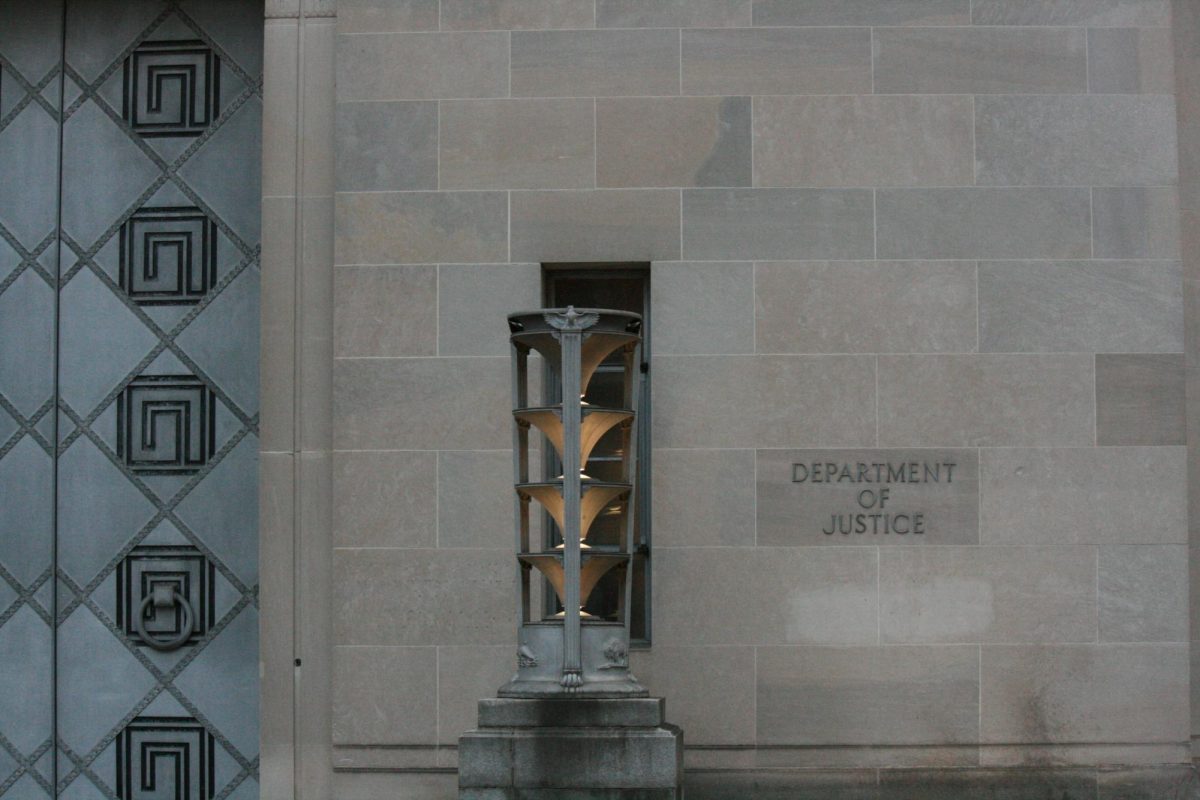Twenty-eight out of 60 departments and programs in the College have decided to change their Pass/Fail grading policy for major and minor courses in Fall 2020 after the administration rejected a College Council (CC) resolution for a College-wide policy. CC has since then started to contact individual departments to request Pass/Fail grading for major and minor requirements.
As of December 5, 35 departments and programs have responded to the CC request, according to CC Representative Allen Abbott. Among them, 28 programs and departments decided to implement opt-in pass/fail grading with variations, including a blanket policy for all major and minor classes, a partial policy for a certain number of classes, and a petition-based policy. As shown in a CC tracker, 29 departments and programs have not confirmed a final pass/fail grading policy with CC.
Blanket policy:
The following programs and departments allow any number of major or minor classes to be graded pass/fail:
- The Classical Studies Department
- Fundamentals Program
- History, Philosophy, and Social Studies of Science and Medicine Program
- One class, HIPS 29810, may not be taken pass/fail
- Inequality, Social Problems, and Change Program
Partial policy:
The following programs and departments allow one or more major and minor classes to be graded pass/fail:
- Cinema and Media Studies
- Two major and minor courses may be taken pass/fail. Students can also petition for additional classes to be taken pass/fail.
- Critical Race and Ethnic Studies Program
- Two major and two minor courses may be taken pass/fail. Students can also petition for additional classes to be taken pass/fail.
- History Department
- One major and one minor course may be taken pass/fail in both fall and winter.
- Latin American and Caribbean Studies Center
- Two major courses and one minor course may be taken pass/fail each quarter. A maximum of four major courses and three major courses can be taken pass/fail between spring 2020, fall 2020, and winter 2021.
- Philosophy Department
- Four major and three minor courses may be taken pass/fail. Students can also petition for additional classes to be taken pass/fail.
- Visual Arts Department
- Two major and two minor courses may be taken pass/fail.
- Political Science Department
- Standard grading policy allows students to take up to two courses pass/fail. During the 2020-2021 school year, up to four classes can be taken pass/fail for current majors, including the introductory courses, which normally need to be taken for quality grades.
Petition-based policy:
The following departments, programs, and centers allow petitions for taking one or more major and minor classes pass/fail:
Certain departments have a limited number of courses students may take pass/fail under the petition-based policy.
- Anthropology Department
- Up to two courses may be taken pass/fail.
- Biological Chemistry Program
- Any number of classes can be taken pass/fail.
- Chemistry Department
- Any number of classes can be taken pass/fail.
- Comparative Human Development Program
- Any number of classes may be taken pass/fail.
- Computer Science Department
- Between spring 2020 and fall 2020, up to 3 major courses, subject to limitations, may be taken pass/fail. Minor classes may not be taken pass/fail.
- Creative Writing Program
- Any number of classes may be taken pass/fail.
- Economics Department
- Any number of classes may be taken pass/fail.
- English Language and Literature Department
- Any number of classes may be taken pass/fail.
- Geographical Sciences Program
- Up to three Geographical Science major courses and two Geographic Information Science minor courses may be taken pass/fail.
- Global Studies Department
- Any number of classes may be taken pass/fail.
- Health and Society Program
- One course may be taken pass/fail.
- Human Rights Center
- Any number of classes may be taken pass/fail.
- Music Department
- Any number of classes may be taken pass/fail.
- Near Eastern Languages and Civilizations (NELC) Department
- Any number of classes may be taken pass/fail.
- Psychology Department
- Any number of classes may be taken pass/fail.
- Public Policy Studies Program
- Any number of classes may be taken pass/fail.
- Sociology Department
- Up to two courses may be taken pass/fail.
Although the following departments and programs have not confirmed a quarter-specific pass/fail grading policy with CC, there are existing pass/fail mechanisms for major classes:
- Law, Letters, and Society Program
- Standard grading policy allows up to two complementary courses to be taken pass/fail. CC has also received reports of students successfully petitioning for altered major policies in response to the pandemic.
No final response:
The following departments and programs have not finalized a pass/fail grading policy in their response to CC. However, in earlier email communications with CC, these departments and programs all supported a pass/fail grading policy.
- Renaissance Studies Program
- Standard grading policy does not allow pass/fail grading.
- Romance Languages and Literatures Department
- Standard grading policy does not allow pass/fail grading, except for non-majors in departmental courses.
- Russian and East European Studies Program
- Standard grading policy does not allow pass/fail grading, except for non-majors and non-minors in departmental courses.
- Theater and Performance Studies Department
- Standard grading policy does not allow pass/fail grading.
- South Asian Languages and Civilizations Department
- Standard grading policy does not allow pass/fail grading.
At the Statistics department, CC has received reports of students successfully petitioned for major/minor policy relief during the pandemic. Per standard policy, students majoring in Statistics must receive quality grades for at least C+ in STAT 24400 Statistical Theory and Methods I. However, one student was able to petition for completing their major requirement with a grade lower than C+ in STAT 24400, according to Abbott. The department does not have a change in their pass/fail policy.
The criteria for successful petitions vary across departments, according to email communications that CC received. NELC Department Chair Franklin Lewis wrote that the department would accept petitions from students whose “academic performance was demonstrably and deleteriously impacted by the ongoing adverse conditions of the COVID-19 pandemic.” For the Psychology department, Director of Undergraduate Studies Anne Henly said that the department will “consider each [student petition] case individually on its merits.”
In the Economics department, Co-Director of Undergraduate Studies Kotaro Yoshida encouraged students to consult with their academic advisers, as the Department will “rely on the information academic advisers collect to assess the severity of the factors that affect [student] performance.” According to Yoshida, “lower-income students and seniors, are likely to rely on this process disproportionately. [The Department] will pay particular attention to their circumstances.”
“It’s really sad that at the end of the day [students] have to justify why the pandemic is hard on them,” said CC Representative Allen Abbott. “So many people have experienced inexplicable loss during this pandemic, […] and it’s hard to have to explain that in a small block of text.”
For departments that did not respond to finalize a policy, CC encourages students in need to petition for relief. “Every department – even if they never respond to our inquiry – is aware that our inquiry is going on,” explained Abbott, “most professors are sympathetic to some degree of the COVID-19 pandemic, and if a student has a reason that they need to pass/fail the class, everything else being equal, even if the department hasn’t implemented a formal policy, they are probably willing to consider and allow on case-by-case exceptions through petition.”
Abbott emphasized that students should be specific in their petition. They should also explain any immediate or foreseeable impacts, of which a low-quality grade would be a proximate cause. Instructions for filing these petitions can be found on CC’s website.
Meredith Daw, Executive Director of Career Advancement, also commented on pass/fail grading from a career perspective in her conversation with CC. “What Ms. Daw was very clear about [was] that pass/fail [grades] certainly [don’t] hurt students at all. [Ms. Daw] has worked with a number of students who pass/failed classes in the spring, and even before the spring, and went on to get highly successful jobs,” said Abbott. Career Advancement is working with CC to publish an informational guide for students to better understand the career implications of taking a class pass/fail.
“If you have a job offer that requires a certain GPA level, and you need to preserve that GPA, pass/fail [grading] definitely makes sense for you,” Abbott concluded.
Going into winter 2021, CC will continue pushing for a universal opt-in pass/fail grading policy by contacting members of the faculty College Council, 40 members of the College faculty who “[have] the power to agenda set and decide policy regardless of the stance of upper-level administrators,” according to CC memorandum. CC has already received support for a winter 2021 opt-in pass/fail grading policy from “key faculty members”.
“Our goal is to have ten strong supporters of the pass/fail initiative in the faculty College Council by the time College Council meets in the beginning of January,” said Abbott. It is the least number of the supporters needed for adding an item to the faculty College Council’s next meeting agenda.
CC will also work with the registrar’s office to make withdrawals from class less impactful. For students who have contracted COVID-19 or experienced other extenuating circumstances and have to withdraw from the class during the quarter, CC will push for an extra policy to allow for the removal of the withdrawal record from the transcript.
Yiwen Lu contributed reporting.










